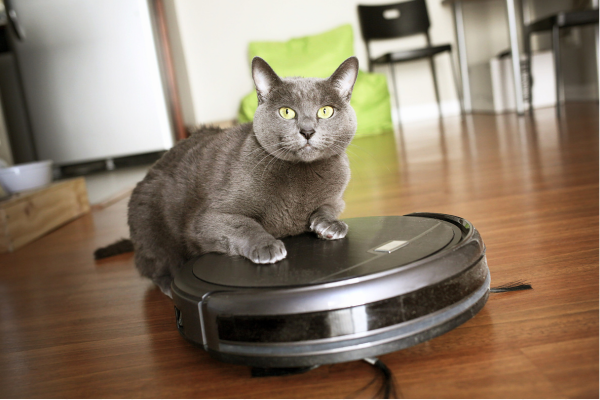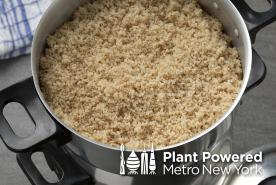May 15, 2025
Discover how people on peritoneal and home hemodialysis live safely with pets. Get expert advice and simple steps to protect your health at home.
Many people believe that you can’t have a pet and do dialysis at home. But that’s a myth! With the right precautions, many people can safely live with their pets while maintaining their treatment.
Dr. Cameron Wolfe, a Transplant Infectious Disease specialist at Duke University and secretary of the Infectious Disease section of The Transplantation Society, shares expert guidance on how to keep yourself and your animal companions safe during home dialysis.
Brittany Dickerson, a former peritoneal dialysis (PD) patient, and Keith Plummer, a former home hemodialysis (HHD) patient, share their personal experiences of managing dialysis while having pets.
The Benefits of Pets for Dialysis Patients
Pets provide more than just companionship—they can boost emotional and physical well-being.
Studies show that pets can:
- Lower stress
- Reduce blood pressure
- Help people feel less lonely
For those on dialysis, these benefits can make a real difference.
“My dog Lola is vital to me. She helps when I feel down or have low energy. She’s always excited to see and spend time with me,” Brittany said. “You can’t put a price on unconditional love when you're going through a hard time.”
Keith, who felt isolated by treatment, found comfort in his cat Tom Tom.
“When I decided to do home dialysis, I had family around me. People visited but were uncomfortable seeing me hooked up,” said Keith. “Tom Tom made the difference. He was always there, snuggling up and letting me pet him. On bad days, having him there was comforting.”
Some pets, especially therapy animals, can even help alert people during a health crisis.
“Tom Tom would wake me up if a hemodialysis alarm went off and I stayed sleeping,” Keith said. “One time, my blood pressure was a little low, but nothing serious. Then my blood pressure crashed, and I passed out. Tom Tom ran off and found my wife. She followed him back to my room and figured out what had happened.”
Take our quick quiz to learn if home dialysis is right for you.
Keep Your Home Safe and Clean

While pets are wonderful members of the family, they can introduce germs to the home. Fortunately, a few simple hygiene habits can help keep your home and dialysis space safe.
- Clean regularly: Vacuum and disinfect surfaces to reduce pet hair and dander.
- Wash your hands: Always wash your hands after handling pets and before touching dialysis equipment.
- Monitor behavior: If your pet jumps or gets too close, consider using baby gates or keeping them in a separate room during treatment.
- Disinfect surfaces: Clean areas around your dialysis setup regularly.
- Create sterile zones: Keep pets away when handling catheters or tubing.
“A pet doesn’t have to touch your dialysis access or equipment to pose a risk,” Dr. Wolfe said. “If you’re not cautious about hand hygiene, you can get an infection. That’s a risk all people on dialysis have, whether or not they have a pet.”
Subscribe today!
Join the NKF Blog Newsletter
Get inspirational stories and kidney disease resources delivered to your inbox every month. You'll gain practical insights and expert advice to help you better understand and manage your kidney health, no matter where you are on your kidney journey.
Know Your Pet’s Personality
Every pet is different. Some are calm and can stay in the room during dialysis. Others may need to be kept separate.
“Every pet has a personality,” said Dr. Wolfe. “Some are calm, making it easier to manage dialysis safely with them in the room. Other pets may need to stay outside while you dialyze.”
Brittany preferred to do dialysis while her dog was in another room.
“I was aware of Lola throughout the day. I would do dialysis while she sunbathed or slept,” Brittany said. “Since Lola was busy doing her own thing, she didn’t try to get into the room where I was dialyzing.”
Other people find ways to include their pets safely.
“Tom Tom insisted on being in the room with me while I dialyzed. I kept him out of the room while I prepared treatment and got the needles in. Once I was settled, my wife let him in,” said Keith. “He sat with me until I put the recliner down when we were ready to unhook. I don’t think he missed a treatment the whole time I was doing it.”
Learn More About Specific Risks
Different pets pose different risks. Understanding these risks can help you take the right steps to stay safe.
- Cats: Litter boxes can carry bacteria and parasites. Always clean them while wearing gloves and a mask. Wash your hands afterward.
- Birds: Cages should be cleaned carefully, as some fungal and bacterial infections can spread through the air. Wash your hands and change clothes afterwards.
- Fish: Fish tanks often contain bacteria that can infect cuts or wounds. Wear gloves and wash your hands.
- Reptiles: These pets can carry Salmonella, a bacterium that can make people ill. Be extra careful when handling and cleaning your hands afterwards.
- Dogs: Keep paws clean to reduce bacteria exposure in your home.
- Rodents (hamsters, guinea pigs, rabbits): Their bedding can harbor bacteria, so change it regularly and wash your hands after handling them.
“Being on home dialysis and then getting a transplant meant a get out of jail free card for cleaning the litter box,” Keith chuckled. “Our litter boxes are also in the basement, as far away from my dialysis equipment as possible.”
Regardless of what pet you have, take them for regular vet checkups.
“A good vet visit will keep your pet up to date with their vaccines, ensure they’ve been dewormed, and trim their nails,” Dr. Wolfe said. “These precautions will help keep you safe.”
The Bottom Line
If you're unsure about how to balance home dialysis and pet ownership, remember—many people do it safely every day. Talk to your healthcare team to learn how you can, too.
Want to learn from a home dialysis patient who's been in your shoes? Get matched with an NKF PEERS mentor.



















